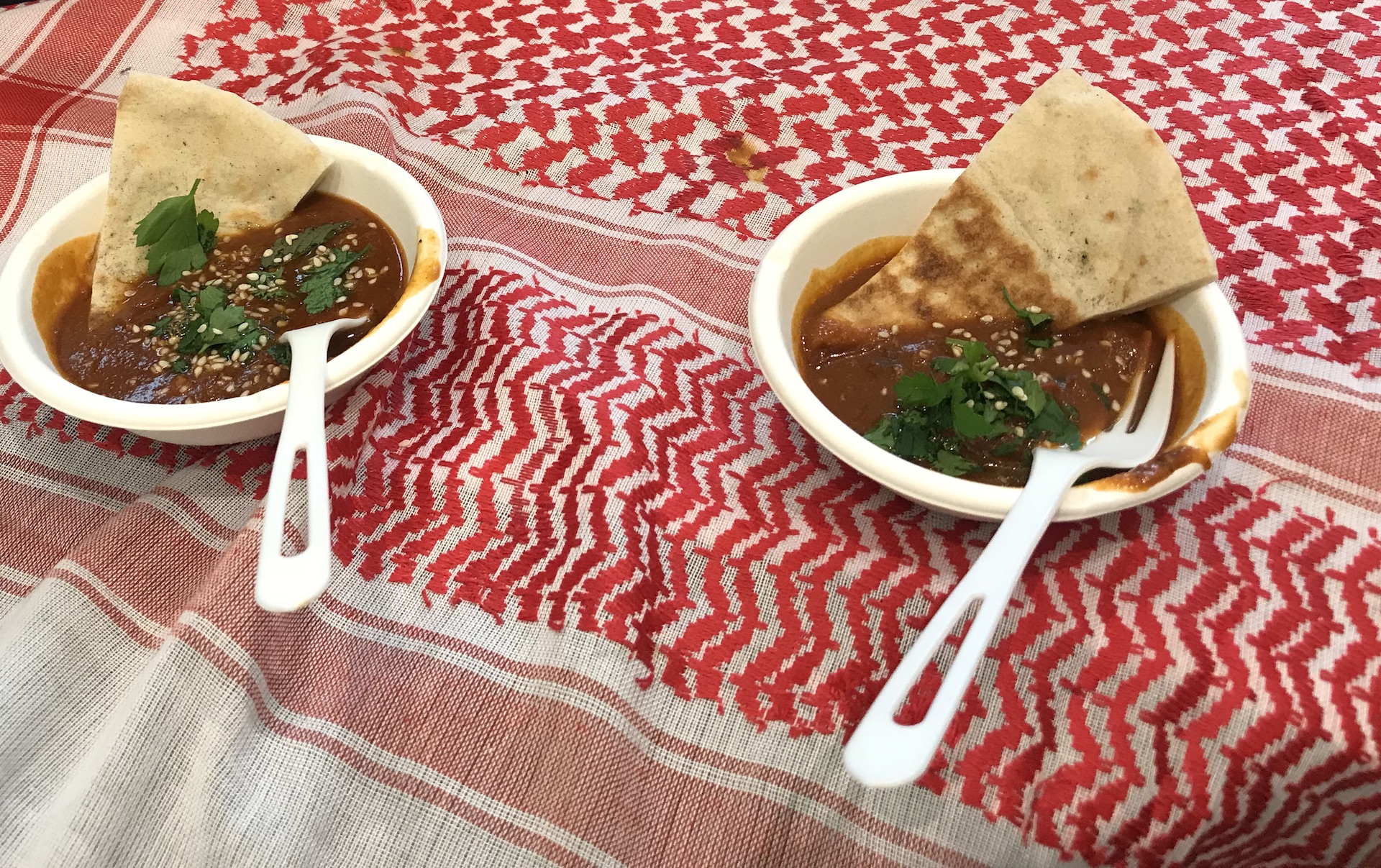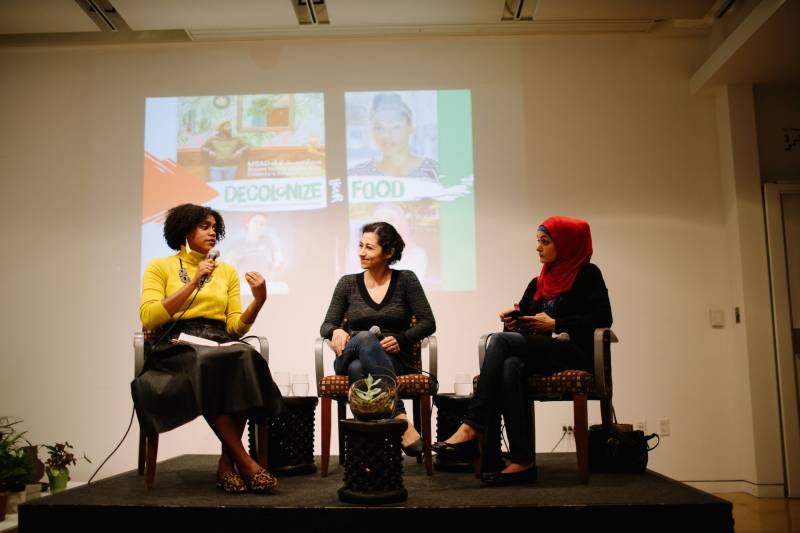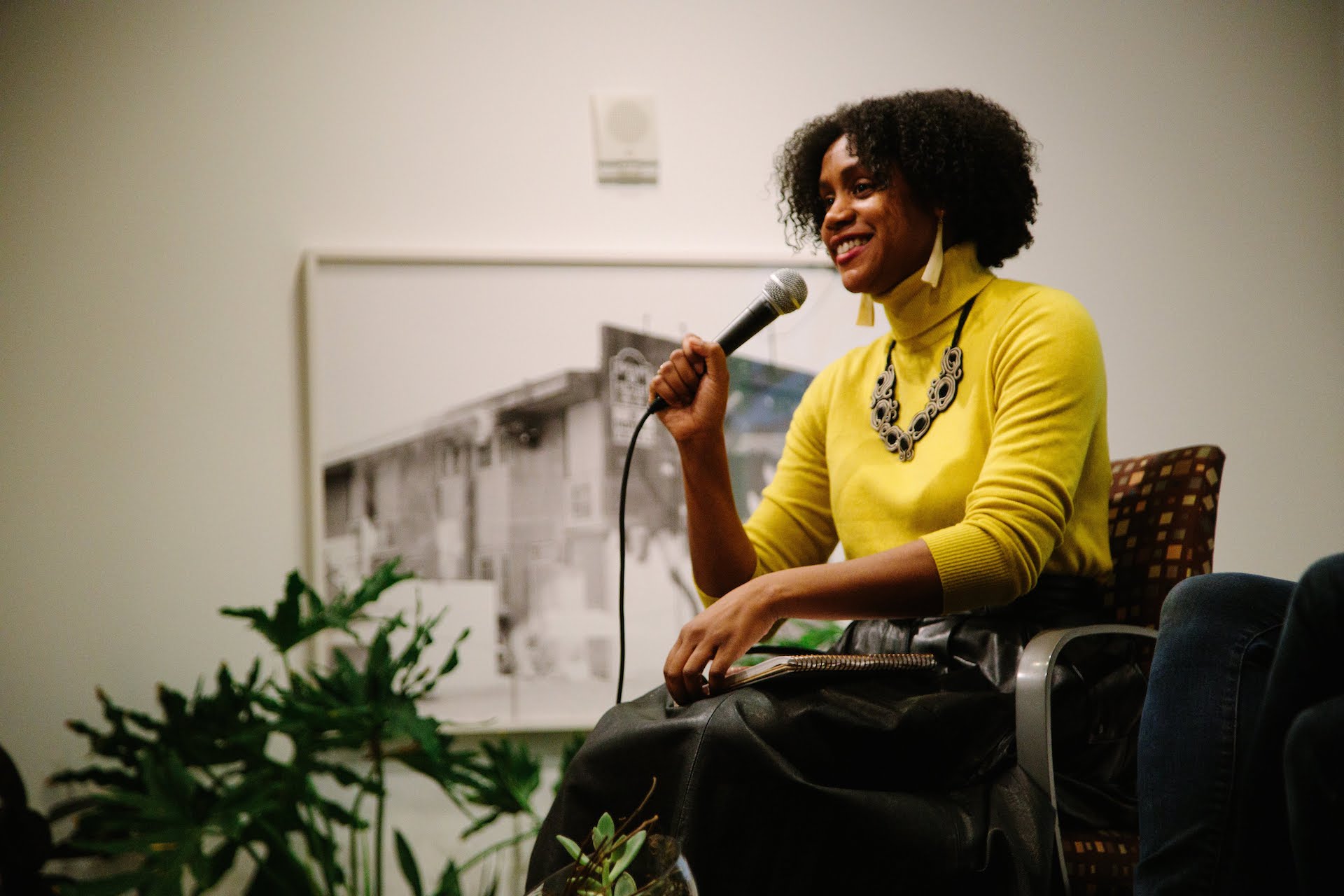Saturday afternoon at the Museum of African Diaspora, Reem Assil served guests warm bowls of zibdiyit gambari, a rich Palestinian tomato and shrimp stew spiced with dill and cumin. In its Gazan birthplace, the dish has become a rarity. Israeli naval blockades have limited fishing along Gaza, the state’s only coast, driving the cost of seafood way beyond what most Palestinians can afford.
It’s with this in mind that Assil, who is of Palestinian and Syrian descent, prepared zibdiyit gambari for Decolonize Your Food, a program organized by Bryant Terry, MoAD’s Chef in Residence, in conjunction with Middle East Children’s Alliance.
In the lobby of MoAD, Assil presented a survey of Palestinian cuisine including her deeply craveable version of musakhan, Palestine’s celebrated roasted chicken dish served over flatbread and an assortment of ful and hummus with pomegranates and crushed peppers to top. Each dish was served next to a stack of notecards describing its origin and cultural significance in Palestine’s current state.

With full bellies and probing minds, guests left the meal to witness a conversation between Assil; Laila el-Haddad, author of the seminal book, The Gaza Kitchen: A Palestinian Culinary Journey; and Shakirah Simley, writer, organizer and newly appointed director of San Francisco’s Office for Racial Equity.
Drawing on the kinship between the Palestinian movement for sovereignty and the fight for Civil Rights in the United States, the dialogue between Assil, el-Haddad and Simley honed in on the historical origins of social inequities that cause food insecurity and cultural erasure of cuisines and their cooks.

